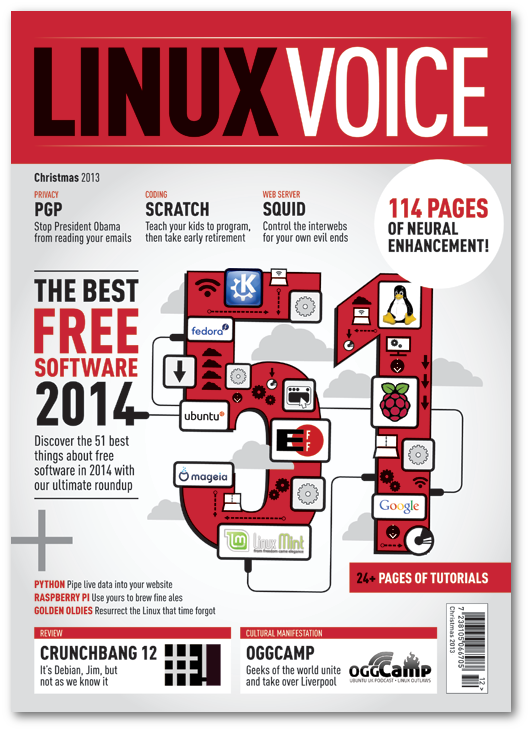
Summary: Adam Saunders of Linux Voice authored a detailed report about prominent software patents-centric cases and how they impact the viability of Free/Open Source software (FOSS)
A new article from Adam Saunders, who writes "Free Software" rather than "Open Source", has just been published online by Linux Voice, which is a magazine that we support because its writers are trustworthy and there is no pressure from any dubious sponsors (many magazines have this problem which results in self-censorship). We've been raving fans right from the very start. The article is a long overview of the patent situation (and to a lesser degree copyright situation) when it comes to Free/Open Source software (FOSS). It begins by stating that "[t]he United States is a popular region for patent litigation for a few reasons. There are some courts, such as the Eastern District of Texas, that have earned a reputation for being “plaintiff-friendly” when it comes to patent cases. That is, if someone brings a patent infringement lawsuit there, they’re more likely than not to win it. The payouts are also pretty high in the United States for a victorious plaintiff; awards can be in the hundreds of millions of dollars, with the highest award given weighing in at over $1.6 billion (US)."
The article is detailed and insightful. It later explains why software patents are now being chased out of the United States (
Linux Voice is British by the way, not American). It explains it as follows: "Alice Corporation, a non-practice patent-holding entity, held patents on a method, system, and process for a particular type of financial risk hedging: namely, that one party to a set of financial transactions won’t pay at one or more stages in the set. This risk is known as “settlement risk”. Alice’s patents describe using a computer to keep track of the transactions between the parties. If the computer determines that a party does not have sufficient funds to pay their obligations to the other side, then the transaction is blocked. Litigation against CLS Bank International for alleged infringement of these patented ideas started in 2007, eventually winding its way up to the Supreme Court of the United States.
"Writing for a unanimous court, Supreme Court Justice Clarence Thomas begins with a brief description of what the patents claimed. There are effectively three different types of claims made: “(1) the foregoing method for exchanging obligations (the method claims), (2) a computer system configured to carry out the method for exchanging obligations (the system claims), and (3) a computer-readable medium containing program code for performing the method of exchanging obligations (the media claims)” (page 3 of the ruling).
"Thomas then goes on to cite the court’s recent ruling in Mayo vs Prometheus, which established a test to determine which inventions incorporating abstract ideas are patent-eligible: “First, we determine whether the claims at issue are directed to one of those patent-ineligible concepts” (page 7). If it is so directed, then the court looks at “the elements of each claim both individually and ‘as an ordered combination’ to determine whether the additional elements ‘transform the nature of the claim’ into a patent-eligible application” (page 7). This is what Thomas refers to as “a search for an ‘inventive concept’” (page 7)."
As we have
repeatedly stressed here over the past week [
1,
2,
3,
4,
5,
6,
7,
8], therein existed an opportunity for Red Hat to smash Microsoft's patents that it was
actively using against Linux (even days ago). Instead Red Hat is filing/applying for software patents of its own (
still) and it has just signed a patent agreement with Microsoft. This agreement seemingly leaves exposed all who are not Red Hat or Red Hat customers, so it would take something rather surprising to show Red Hat did not act selfishly and recklessly (a cleverly-crafted short FAQ is not a contractual agreement). A "standstill" serves to insinuate that two sides are in conflict, but the matter of fact is that only Microsoft is attacking and a "standstill" implies only
temporary peace. What kind of a 'bargain' is that? Red Hat sold out and it hopes that critics will just forget about it and go away.
We are still pursuing answers from Red Hat. It's work in progress and continued silence will serve the reinforce suspicions of guilt. Red hat would be better off becoming transparent. If it fails to provide answers in the next few weeks we are going to speak to come influential people like Richard Stallman about the problem and look for solution, or even a damning statement on this matter.
⬆

